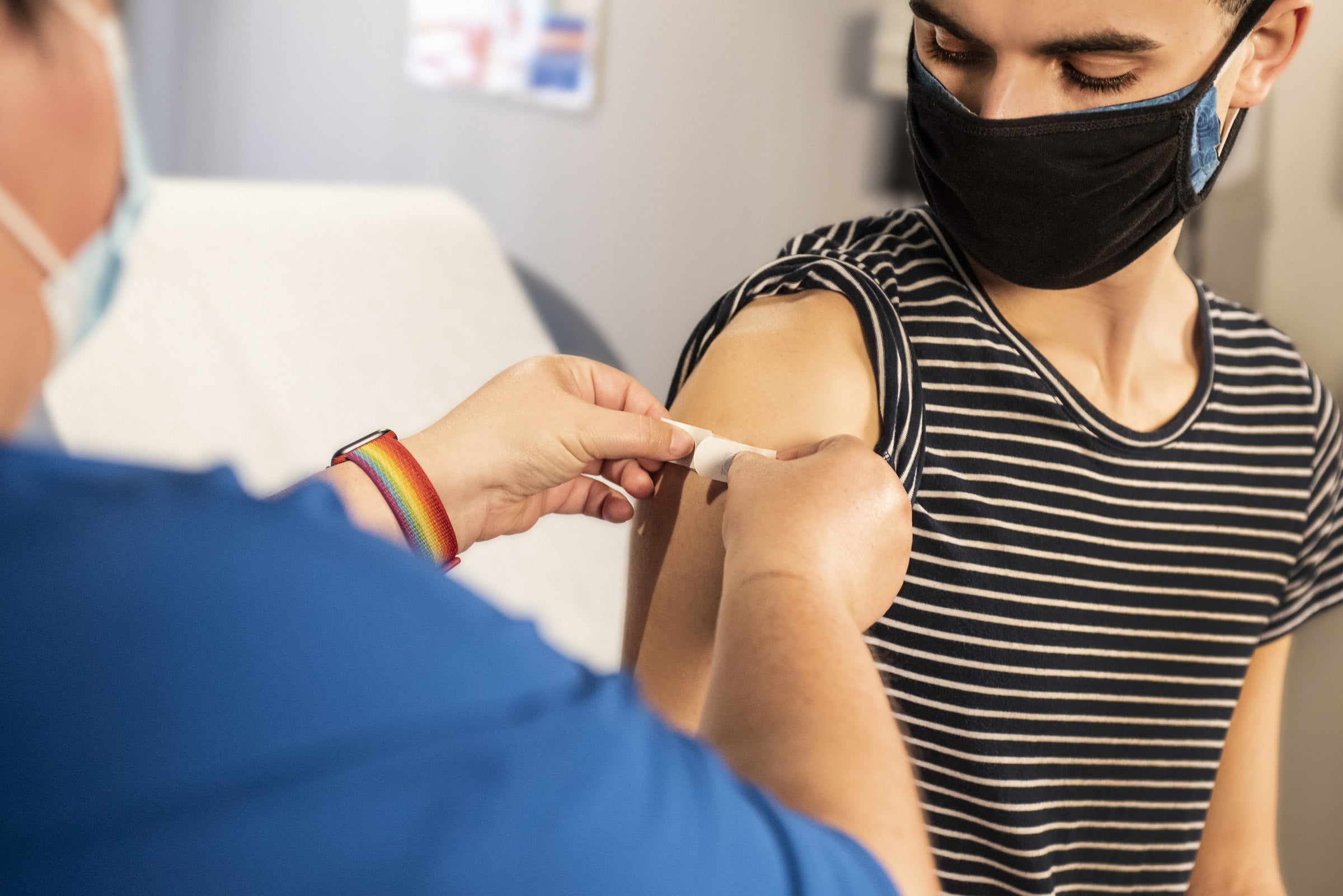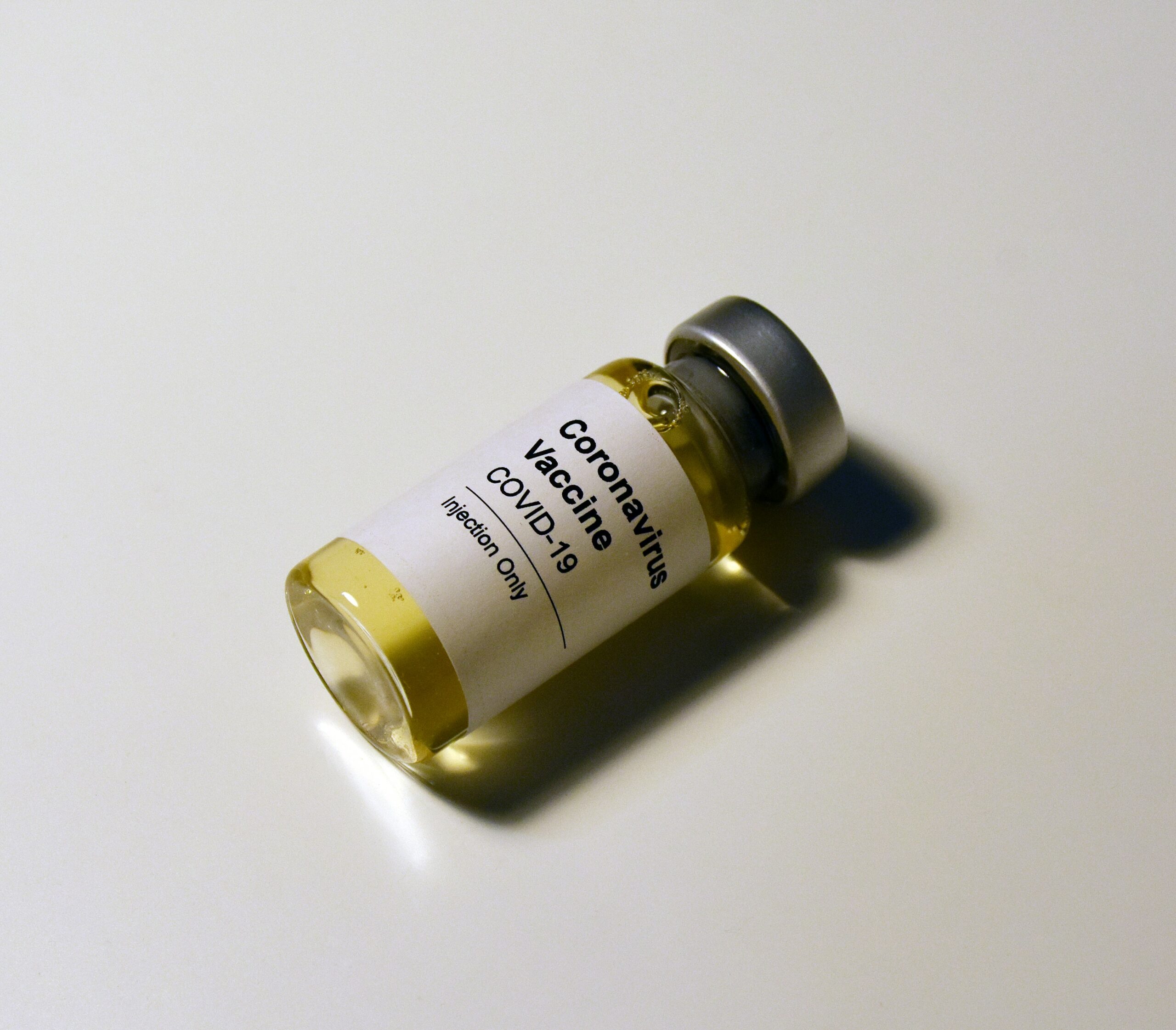
Why are fully vaccinated people still getting COVID-19?
While the vaccine provides protection from COVID-19, it is still not 100%. The efficacy of the Pfizer vaccine is 95% and Moderna 94%. That means it is still possible to contract COVID-19 after completing both vaccinations.
While it’s easy to panic when we hear people contracting Covid after vaccinations, it’s important to remember that infection rates post-vaccine are compatible with vaccine efficacy and are to be expected.
In one study conducted by the Centre for Disease control in America, researchers analysed infections in 78 Chicago nursing homes with nearly 15,000 vaccinated residents and staff. They found 22 infections in fully vaccinated individuals. Fourteen were asymptomatic and five had only mild symptoms.
Will we need a top-up?
A potential long-term solution to variants could be to have booster shots against COVID-19 every few years, to increase immunity against the disease.
Are there vaccines which will cover new strains?
At present there are no vaccines that cover against the variants, as clinical trials are continuing. Variants are not always a negative thing – many viruses mutate to adapt to the host, and they can become more transmissible, but less potent. Hopefully COVID-19 will behave like almost all other viruses.
The World Health Organisation (WHO) says that if any of the current vaccines prove to be less effective against one or more variants, it is possible to change the composition of the vaccines to protect against these variants.
Remember: prior vaccinated or infected persons will be protected to a considerable extent against variants.
Does getting the vaccine mean I won’t get very sick if I catch Covid?
Studies published by the Centre for Disease Control (CDC) in America in mid-April show that when infections do occur, symptoms tend to be non-existent or mild. Also, vaccinated individuals who become infected have lower viral loads than unvaccinated people – this means they are less likely to transmit the virus. As the WHO says: “We are all safe only if everyone is safe”.
Will I need a vaccine to travel or attend large scale events?
While some countries, such as Israel have adopted this a “green light” vaccine passport to attend events such as concerts, Singapore has yet to announce any similar measures. However, you may have noticed that the Trace Together app now records your vaccination status.
Vaccine Passport initiatives vary from country to country. The US has no plans for a national vaccine passport but recently annouced that fully vaccinated people can resume activities without wearing a mask or physically distancing. The European Union is developing a digital green certificate that would enable it’s vaccinated citizens or those recently recovered from COVID-19 to travel freely among its nations.
The International Air Travel Association, advocating for about 290 airlines worldwide, is testing its IATA Travel Pass app. This shows vaccination status and COVID-19 results. In April, Etihad Airways was the first airline to trial the app. At stage there is no worldwide travel passport.

What’s the difference between Moderna and Pfizer?
The two vaccines currently in use in Singapore are both developed using new mRNA technology which injects snippets of COVID-19’s genetic material (not the whole virus) into the human body to create an immune response. mRNA never enters the nucleus of the cell and therefore does not affect our DNA.
The vaccines differ in efficacy – Moderna at 94% and Pfizer at 95%. Moderna can be stored at a lower temperature for a longer period of time and is approved for 16 years old and up while Pfizer is approved for 18 years and up. They both require two doses: Pfizer is 21 days apart and Moderna is 28 days apart.
Both have the same side effects. These vary – some report no side effects, while others experience chills, headache, pain, fatigue and/or redness at injection site, all of which generally resolve within a day or two of rest and with medication like Panadol. Keep hydrated and rest is our advice.
What’s the story in Australia and NZ?
New Zealand started their vaccination schedule in March and aim to complete by the third quarter of 2021. So far, New Zealand is on track with its predicted rollout and as of the 27 April just over 230,000 people have been vaccinated. Australia has not been so successful; they have revised their vaccination timeline twice and at the current daily vaccination dose it will take 30 months to administer the required 45m doses. They have currently administered 3.2 million doses.
What stage are Singapore at in its vaccine program?
Singapore’s vaccination program has been hailed as efficient and well organised. As of 18 May 1,852,684 have been given a first dose, 1,284,646 are fully vaccinated and 3,137,330 doses have been given. The 40-44 age group have been called up and the Senior Minister of State for Health Janil Puthucheary said in Parliament in April: “If all goes well, we will complete the vaccination programme as scheduled by the end of the year.”
The interval between the first and second doses of the COVID-19 vaccine will be extended to between six and eight weeks, up from the current three to four weeks – meaning more people will be able to get protection from the first dose.
What about kids?
In Singapore, the Pfizer vaccine has been authorised by the Health Sciences Authority (HSA) to be used for children between 12 and 15 years old, Health Minister Ong Ye Kung announced on 18 May.
Is it worth signing up if it is not your age group?
Yes! This information is valuable for the government to plan their vaccination rollout. Sign up at vaccine.gov.sg
Check in with the team at IMC at imc-healthcare.com








